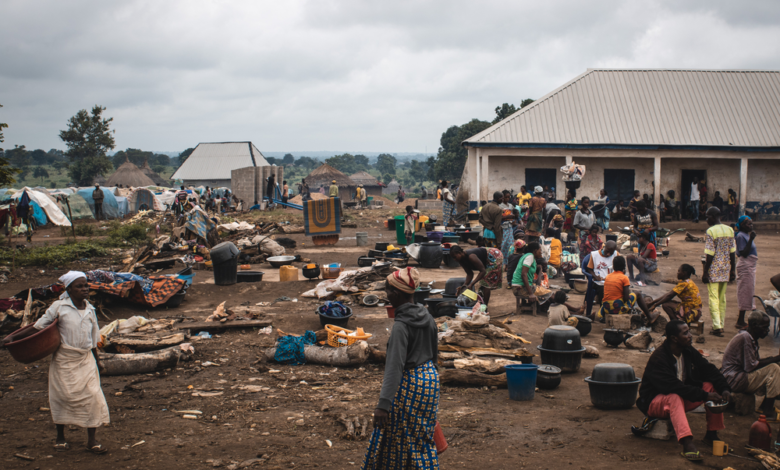Displacement Continues To Leave Thousands Exposed To Diseases In North-central Nigeria – MSF
Medecins Sans Frontiere (MSF) said Benue State hosts the largest number of IDPs outside the country’s Northeast, leaving thousands in horrible living conditions.

Medecins Sans Frontieres/Doctors Without Borders (MSF), an international NGO, said continuous and increased violence in Benue State, North-central Nigeria, is expanding new waves of displacement into informal camps where services and support are non-existent.
With Benue plagued by inter-communal clashes, mostly between herders and farmers, it “hosts the largest number of IDPs outside the country’s Northeast which has been rising from 160,000 in 2019 to 198,000 in 2020, and more than 220,000 people in early 2021, MSF said.
The organisation said the newly displaced population is in urgent need of shelter, WASH services, vaccination, and protection.
“Displaced families have been living in overcrowded tents for years, there is no hope for them to return home and they have been deprived of their traditional means to gain income.”
In cooperation with Benue’s State Emergency Management Agency, MSF has built shelters, latrines, and dug boreholes in Mbawa camp. But as the camp population keeps growing, there is an increasing need for services.
It noted that while conditions for IDPs in Mbawa are difficult, they are even worse in other areas of Benue. Some 12 km away from Mbawa, more than 8,000 people – as of early August – live in a makeshift camp in an area called Ortese. They have been displaced by a new wave of violence that started in the area in April 2021.
MSF cited a case of Kubur and his family who have been living in Mbawa camp, which houses 8,000 displaced people, for four years.
“This tent cannot protect us from gunshots. It can be flooded with rain and torn with a knife by any thief, life in a tent is nothing like living in my hut in the village,” Kubur said.
The farmer said he wanted to return to his village, rebuild his home, and start farming again. But he is scared.
“If I go back, I fear that my family and I will be killed immediately, my biggest concern is how to feed my children. I used to have a motorcycle but I lost it, and my legs cannot carry me far. There are few opportunities for me to earn money.” Kubur said.
Kwado Daniel, a community health worker who is working in the MoH clinic, said the situation has deteriorated since the clinic was set up four years ago.
People are suffering, Daniel said, “the residents of the camp used to be able to find work on farms during the rainy season, but now, they are all here, no one can farm.”
While conditions for IDPs deteriorate, people living in the camp suffer from high rates of malaria, acute diarrhea, respiratory tract infections and skin diseases.
“There is little I can do to help them as we have run out of medicine in the MoH clinic. I also had my home in Guma taken away, and I had to move to Makurdi,” Daniel said.
Mohamed Ali, MSF Deputy Head of Mission in Benue said in the first six months of 2021, MSF has provided over 15,000 outpatient consultations.
“Additionally, there is an alarming number of survivors of sexual violence that come to the reproductive health clinic whom we are supporting. We see an average of 24 patients per month who have been raped or subjected to sexual violence.”
“There are wide gaps between the assistance that is available to people and their pressing needs, Ali said. “We wish there were other organisations who could provide support, but the resources for Nigeria are limited, while there are so many needs.”
MSF has been working in Benue since 2018, predominantly with displaced farming communities. Our teams established and handed over to the MOH a primary health clinic in Mbawa and Abagana IDP camps, and MSF is currently providing reproductive and sexual healthcare for adolescents and mothers, as well as survivors of sexual violence mainly in Mbawa.
Support Our Journalism
There are millions of ordinary people affected by conflict in Africa whose stories are missing in the mainstream media. HumAngle is determined to tell those challenging and under-reported stories, hoping that the people impacted by these conflicts will find the safety and security they deserve.
To ensure that we continue to provide public service coverage, we have a small favour to ask you. We want you to be part of our journalistic endeavour by contributing a token to us.
Your donation will further promote a robust, free, and independent media.
Donate HereStay Closer To The Stories That Matter




